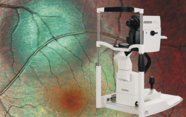How to Approach Surgery in Your Early Career
Ten tips for being a better retina surgeon, after you’ve completed your fellowship
At a Glance
- You are not done with learning after you’ve made it past fellowship
- The patients you operate on now will be the patients you see for years to come – every retina examination will be a reminder of how that surgery went.
- You need to be mindful of your limitations and biases – and always work to improve yourself as a surgeon
- Here, we share what we’ve learned from our experiences as early surgeons
The beginning of your post-fellowship career is fraught with multiple perilous transitions. Perhaps the most daunting is assuming the role of primary surgeon. The first three-to-five years after training can be thought of as a second fellowship where you will: hone your skills as a surgeon and improve your efficiency, determine what approaches work best for you, and define your threshold to operate for different conditions. The patients you operate on now will be seeing you for years to come – you want to make sure to put yourself in the best position for success, as you will be reminded of that surgical effort every time you examine that retina.
Every young surgeon graduates from training with a unique skill set that was cultivated over years of education. However, it is important to remain mindful of your limitations and biases, while always trying to improve.
We have had the opportunity to learn from skilled mentors as well as from our own experiences, and we hope our pearls of wisdom will help you in your early career. Although our article is focused on vitreoretinal surgery, many of these lessons can be applied broadly to other surgeons. You will find yourself torn in different directions in the operating room and some pieces of advice may seem at odds with others; learning the right balance of competing instincts is the key to becoming a good surgeon.
- Learn from other people’s mistakes instead of making your own The vitreous base is not the only thing that benefits from a little support – mentorship and support will be critical elements to your success. Sleepless nights and anxiety are common features of the very common but often under-diagnosed Early Surgeon Syndrome (ESS). It may seem cliché, but being a physician means being a lifelong student. Surgery can be overwhelming, even for seasoned veterans, so do not be afraid to ask questions. Your prior mentors will always be happy to hear from you and lend their insights – you will always be one of their fellows in their mind, your association with them does not end at graduation. Many young surgeons are afraid that asking for help will make them look weak to their new colleagues, and though some more established surgeons may not be very sympathetic, most of your co-workers are invested in your success. Surgeons have two phases in life – mentee and mentor. Most established doctors are happy to take a new physician under their wing and help guide them. Take time to identify some mentors at your new practice and figure out who will be a trusted and safe “no judgment” resource. It is important to have someone you can go to for all the “dumb” questions you might be afraid to ask others. It is critical to have people you can trust in a pinch – including those you can call from the operating room.
- Treat the patient, not the picture It takes skill to know when to operate on a patient, but it takes even more skill to know when it’s best to hold off on surgery. Too many surgeons feel compelled to operate on a patient with a dramatic optical coherence tomography scan. Do not let yourself fall into the trap. Listen to the patient to figure out what, if anything, is bothering them as well as their visual priorities and goals. You will seldom impress an asymptomatic patient with an improved OCT scan, but you have everything to lose in the case of a rare complication.
- Undersell and over deliver Emphasize and make sure patients understand the goals and expectations of surgery before you go to the operating room. It is critical to also document these conversations in your charting for medico-legal purposes. Many patients consider all eye surgeries to be the same, so they might expect 20/20 vision after a chronic macula-off retinal detachment repair because their next-door neighbor could see really well after routine cataract surgery. For many conditions – even the routine macular hole or epiretinal membrane – patients need to understand that they may see better, but the chance that they will see perfectly is remote. If you feel like you are making “a pitch” to get a patient into the operating room, it’s time to re-evaluate if it is the right surgical case or the right surgical patient. At the end of your consultation, the patient should be asking you to operate, not the other way around.
- Be willing to take it slow and to take a step back Do not be afraid to stage procedures instead of tackling too many issues at once. Let the patients know their problem might require more than one surgery. Young surgeons often feel like returning to the operating room is an intrinsic failure; however, it is sometimes safer and smarter to take a step-wise approach. Judging a surgeon by operative time is like grading a book report by word count. Speed comes with improved efficiency. Efficiency will come with time and patience. Avoid feeling rushed if you are taking longer than expected and avoid trying to finish by a certain time on the clock. It can be easy to start to feel the growing tension in the room as the operative staff starts to worry about getting home on time. Remember your only responsibility is to the patient – get the job done and get it done right. Similarly, do not be afraid to send patients for second opinions or ask your colleagues to take on a particularly challenging case. Patients often appreciate the opportunity to get a second opinion and it can engender more confidence in you because it shows you have nothing to hide. You’ll have more surgeries than you can count in 10 years, losing a case in the interest of being smart now will not make a difference in the long term. Most senior colleagues appreciate an associate that is conservative in their approach.
- Respect the lens, but do not be a slave to it In a competition between the retina and just about any other part of the eye, the retina wins. Your goal is to fix the retina – the most prime piece of ocular real estate (in our somewhat biased opinion). Young surgeons are often afraid to remove the lens intraoperatively or to perform maneuvers that might increase cataract formation (such as crossing a little beyond the mid-point to access a difficult to reach area or putting in long-acting gas). You are going to be kicking yourself far more over a recurrent detachment than an early cataract or aphakic patient.
- Be a surgeon outside the operating room Pre- and post-game planning are critical elements to ensuring a smooth surgical experience, especially early in your career. Take time to think out each step of your surgery, even the mundane ones; consider where to position your Mayo stand, where to sit, and how to hand off instruments. Take the time to talk to your operating room staff to let them know what you plan on doing before the case, what to have opened (and what to have in the room ready), and how you like to run your ship. In the operating room, it’s common to feel like you’re in a rush to get the case started – but it is important to invest a few minutes to make sure things are set up like you want. Make sure the microscope is on the right settings, the foot pedals are in the right place, the bed is at the correct height, and the patient is draped like you want. Small issues in your setup can cost you far more time later during the case or prove to be a persistent headache while operating. It is important to plan for as many intraoperative possibilities before you head into the operating room – have a plan in place for every contingency, so you can have the appropriate equipment (and mindset) in the room to smoothly fix the problem as soon as it arises – what if the lens falls during the case? What if you cannot get the hyaloid off easily? What if you lose your ILM flap before completing the peel? Early in your career, when your cases take longer, you should expect the view to worsen towards the end of the case – so anticipate in advance what to do. You will find the amount of cornea you scrape is an indirect measure of your surgical speed – remember, Viscoat is your friend. Most people want to relax after finishing a day in the operating room, but instead invest the time to think critically about your cases for the day – this works even better if you can record your surgeries and watch them. Think about places where you could have been more efficient, as well as what struggles you encountered and how you overcame them, as it will help you plan your future surgeries.
- Take the easy win Invariably, in any surgery, there comes the critical juncture of when to decide you are done. This can be a struggle for young surgeons. There is a balance between doing a limited core vitrectomy and a few dozen spots of endolaser for a diabetic vitreous hemorrhage and meticulously shaving the vitreous base for an epiretinal membrane. The longer you are in the eye, the greater the likelihood that something could go wrong; however, there is an important trade-off to consider, though some are fond of saying “the enemy of good is perfect” it can be equally true that “the enemy of good is ‘good enough’.” Finding the balance is one of the hardest parts of the “art” of surgery, but ultimately you have to learn what a “win” will be for each case. Once you hit the win threshold, you know you can comfortably end the surgery. You’ll find yourself staring at a macula, vitreous base, or a row of laser and wondering if it looks good enough. If you are there to peel an epiretinal membrane, you shouldn’t obsess over a stubborn piece of ILM that will not come off from the macula. You should go as far as you need to ensure a good result for the patient, without cutting corners. Resist the impulse to make it look perfect for the sake of looking perfect – the patient is not going to see how their retina looks, they only care how they see.
- Do not become complacent Avoid being too adventurous in the first few months of your career – stick to what works best in your hands. Over time, however, you’ll want to venture out and try new techniques. It is important to strive for continued improvement and growth – the best surgeons are not doing the same thing they were 20 years ago. Take advantage of high-quality surgical videos available online and even reach out to authors for advice – most of them love passing on additional thoughts and helping you employ their techniques. Check in frequently with your former co-fellows and contemporaries to see how their surgical approaches are evolving. In a few years, you should be giving tips to your old fellowship mentors on how you have expanded on their methods.
- Your best chance to fix a problem is the first time The probability of success falls exponentially with each successive surgery. You do not want to be one of those surgeons whose patients know the OR staff’s names by memory. Some patients simply have bad protoplasm and are destined to require repeat surgery; however, when the need for an extra step may be equivocal, lean towards over-treatment if it increases your probability of success (see Tip #7). Which brings us to…
- Scleral buckles still have a place in detachment repair Do not let anyone tell you otherwise. It seems increasingly popular to view the scleral buckle as a remnant of a bygone era, now obsolete due to advances in vitrectomy surgery. Although for many detachments a buckle is no longer necessary, it still holds value in the right context. While refractive shift, ptosis, and diplopia are legitimate concerns when to comes to scleral buckling, there will be many cases where you are more likely to wish there was one there than regret putting one on. You will often hear colleagues say they think they can “get away” or “get by” with just a vitrectomy. Focus instead on how to “get it right.”
Bobeck S Modjtahedi is a vitreoretinal surgeon at the Southern California Permanente Medical Group (SCPMG) in Baldwin Park, CA, USA. He was voted #6 on The Ophthalmologist ‘Rising Stars’ Power List 2017. He can be reached by email at [email protected]. Eduardo Uchiyama is a uveitis specialist and vitreoretinal surgeon at Retina Group of Florida in Ft Lauderdale, FL. He is also an Affiliate Assistant Professor of Clinical Biomedical Sciences at the Charles E. Schmidt College of Medicine, Florida Atlantic University, Boca Raton, FL, USA. He can be reached by email at [email protected].
Modjtahedi is a vitreoretinal surgeon and Director of the Electrophysiology and Retinal Degeneration service at Southern California Permanente Medical Group (SCPMG), Baldwin Park, CA, USA, and also supervises their Eye Monitoring Center tele-ophthalmology program. He was voted #6 on The Ophthalmologist ‘Rising Stars’ Power List 2017. He can be reached by email at [email protected]. Eduardo Uchiyama is a uveitis specialist and vitreoretinal surgeon at Retina Group of Florida in Ft Lauderdale, FL. He is also an Affiliate Assistant Professor of Clinical Biomedical Sciences at the Charles E. Schmidt College of Medicine, Florida Atlantic University, Boca Raton, FL, USA. He can be reached by email at [email protected].













